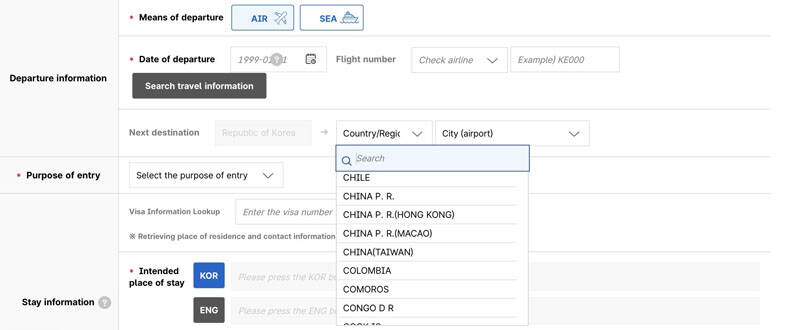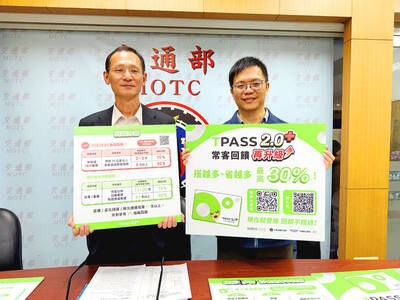The Environmental Protection Administration (EPA) yesterday proposed a new land reclamation project that would make use of solid waste and garbage as part of an effort to help solve the nation’s waste disposal problems.
The land reclamation plan would increase the country’s coastline and ease pressure on waste disposal processes and the nation’s old landfills, which are inadequate and nearly filled to capacity, causing rampant illegal dumping, Environmental Protection Administration Minister Stephen Shen (沈世宏) said during a meeting.
According to the agency, Taiwan generates between 3.8 million and 7 million cubic meters of waste that needs to be disposed of each year.
It added that this would become an issue when the few remaining dump sites are full, which could happen in just a few years.
The agency said its proposal, which is to be trialed at seaports first, was intended to draw on the experiences of Japan and Singapore in using waste to reclaim land.
Taiwan has four international harbors — Keelung, Taichung, Kaohsiung and Hualien — and four subordinate seaports — Taipei Harbor, Suao Harbor, Anping Harbor and Yungan LNG Seaport.
At the meeting, representatives from Taipei Harbor suggested that their port be allowed to accept treated and physically and chemically stable waste from the private sector to help solve the dumping issue and facilitate the seaport’s land reclamation projects.
New Taipei City (新北市) officials suggested that incinerator bottom ash — in addition to being recycled for commercial purposes — be used as one of the materials to reclaim land.
Aside from the technical details about how land would be reclaimed, the agency said that such a project would require the approval of the Executive Yuan before it could be carried out.

Taipei and Kaohsiung have extended an open invitation to Japanese pop star Ayumi Hamasaki after Chinese authorities abruptly canceled her scheduled concert in Shanghai. Hamasaki, 47, had been slated to perform on Saturday before organizers pulled the show at the last minute, citing “force majeure,” a move widely viewed as retaliation for Japanese Prime Minister Sanae Takaichi’s recent remark that a Chinese attack on Taiwan could draw a military response from Tokyo. Taipei Mayor Chiang Wan-an (蔣萬安) yesterday said the city “very much welcomes” Hamasaki’s return and would continue to “surprise” her. Hamasaki, who has a large global fan base, including

‘REGRETTABLE’: Travelers reported that Seoul’s online arrival card system lists Taiwan as ‘China (Taiwan),’ the Ministry of Foreign Affairs said The Ministry of Foreign Affairs yesterday urged South Korea to correct the way Taiwan is listed in its newly launched e-Arrival card system, saying the current designation downgrades the nation’s status. South Korea rolled out the online system on Feb. 24 to gradually replace paper arrival cards, which it plans to phase out by next year. Travelers must complete the electronic form up to 72 hours before entering the country. The ministry said it has received multiple complaints from Taiwanese travelers saying that the system lists Taiwan as “China (Taiwan)” in dropdown menus for both “place of departure” and “next

Starting next month, people who signed up for the TPass 2.0 program can receive a 15 percent rebate for trips on mid to long-distance freeway buses or on buses headed to the east coast twice every month, the Highway Bureau said. Bureau Director-General Lin Fu-shan (林福山) said the government started TPass 2.0 to offer rebates to frequent riders of public transportation, or people who use city buses, highway buses, trains or MRTs at least 11 times per month. As of Nov. 12, 265,000 people have registered for TPass 2.0, and about 16.56 million trips between February and September qualified for

HOW RUDE: Joe Biden’s Indo-Pacific defense chief condemned China’s response to Takaichi’s remarks as inappropriate and heavy-handed, while praising Japan’s nerve A former US defense official under former US president Joe Biden has voiced support for Japanese Prime Minister Sanae Takaichi for her remarks suggesting that Japan could help defend Taiwan, while describing Beijing’s response as “inappropriate.” Ely Ratner, who served as assistant secretary of defense for Indo-Pacific security affairs from 2021 to this year, said in a CNA interview that Takaichi’s comments on Taiwan simply reflected Japan’s position and stance on Taiwan. On Nov. 7, the Japanese prime minister commented in a parliamentary session that a Chinese attack on Taiwan could constitute “a situation threatening Japan’s survival” that could trigger a military